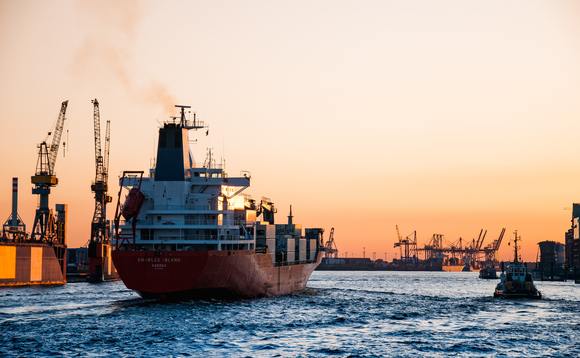Jules Kortenhorst
World leaders are making increasingly ambitious commitments to reduce greenhouse-gas emissions and limit the catastrophic effects of climate change. But to convert commitments into results, more must be done to decarbonise all sectors of the global economy rapidly.
This process will be relatively easier for sectors like electricity and passenger cars, where clean-energy solutions are ready for deployment at scale. But it will be much more difficult for aviation, cement, shipping, steel, and other “hard-to-abate” sectors.
Achieving net-zero emissions in these sectors requires the rapid commercialisation of technologies that are not yet quite ready for deployment at scale; and commercialisation, in turn, will require coordination across industries. Companies supplying products such as steel need to align with their customers, financial partners, policymakers and other stakeholders to agree on a decarbonisation pathway for their industries.
Such a consensus is necessary to ensure that everyone understands which technologies are progressing and at what pace. With that knowledge, everyone can align on the process of investing in low-carbon assets with long life cycles, such as steel mills, cement factories, ships, and airplanes.
Achieving this level of alignment across global industries is not easy, but it can be done. Consider the shipping industry, which has already developed a global decarbonisation pathway under the leadership of the Global Maritime Forum’s Getting to Zero Coalition. This four-step alignment process, enshrined in the Poseidon Principles, is now being replicated across other hard-to-abate sectors under the leadership of the Mission Possible Partnership.
The MPP is a global coalition of industrial and climate leaders focused on supercharging efforts to decarbonise some of the world’s highest-emitting industries in the next ten years. Its immediate priority this year is to shine a spotlight on the leading hard-to-abate sectors at the COP26 climate-change conference in Glasgow this November.
While the previous United Nations climate change conferences have focused primarily on national commitments and policymaking, additional mechanisms need to be activated to accelerate the pace of emissions reductions. Ambitious climate targets will not be within reach until the leaders of the industries that produce the most emissions have decarbonised their entire global supply chains. As my former colleague Paul Bodnar of BlackRock likes to say, “The real economy is not a side show.” Elevating industry to the same level of importance as national governments is critical.
A few key technologies will be essential to decarbonisation efforts across all hard-to-abate sectors. Chief among these is green hydrogen produced with renewable electricity and electrolyzers. Efforts to scale up green hydrogen production are already underway with programs such as the Green Hydrogen Catapult and the US Department of Energy’s recently announced Hydrogen Shot, which is modeled after the successful SunShot program that rapidly brought down solar-panel costs. Moreover, there are early signs of rising industrial demand for the low-emissions products that green hydrogen enables. The automaker Volvo, for example, has announced that it will source fossil-fuel-free steel from the Swedish green-steel venture HYBRIT.
Technologies to improve efficiency are another key (though less exciting) ingredient in decarbonising hard-to-abate sectors. Whether it means deploying lightweight aircraft or constructing buildings with less steel, the less energy an industry uses overall, the easier the process becomes. A recent analysis from the Energy Transitions Commission (ETC) shows that the first step to building a net-zero global economy by 2050 is simply to use less energy, followed by scaling up and universalising clean-energy sources.
The ETC also highlights the importance of carbon capture and sequestration, which will be needed not only to offset industrial processes that cannot be fully decarbonised, but also to reduce the level of carbon dioxide already emitted into the atmosphere. Accounting for historic emissions is a complex process that most industrial leaders have yet to consider fully. But they had better start thinking about it now, because any realistic pathway to keep global warming within 1.5°C of pre-industrial levels will have to include reducing atmospheric CO2.
Not only do we need to remove massive quantities of CO2 from the atmosphere; we also must find long-term storage solutions to keep it locked away for hundreds or even thousands of years. This is where the gap between the net-zero objective and existing technologies is the largest.
Who should bear the costs of tackling this problem? Certainly, many argue that the countries and companies responsible for the largest share of historic global emissions should assume a corresponding responsibility for CO2 removal. In an upcoming article, the World Economic Forum’s Global Future Council on Net-Zero Transition will explore this issue and describe different approaches for how we might reach a consensus on responsibility for historic emissions.
As we look toward COP26, we must pay ample attention to all these challenges. National governments and global industries alike need to act immediately to reduce emissions; merely committing to act in the future is no longer acceptable. The longer we fail to lock in more sustainable development pathways, the harder it will be to keep global temperatures at a safe level. Even if we do reduce annual emissions somewhat, it is the cumulative amount of CO2 in the atmosphere that matters. If that is still growing, the problem will not be solved.
We need global leaders everywhere to understand the scale and urgency of the crisis we face. Radical collaboration and coordinated action are required right now, from everyone. It is not just future generations that are depending on us. Even tens of millions of people are already suffering in terrible heatwaves, fires, floods, droughts, and storms. From California and Texas to entire regions of Africa, Asia, and the Middle East, the catastrophic consequences of the climate crisis are compounding. While the costs of reducing emissions are significant, they are negligible compared to the costs of failing to do so.
The writer is CEO of RMI. ©Project Syndicate






































